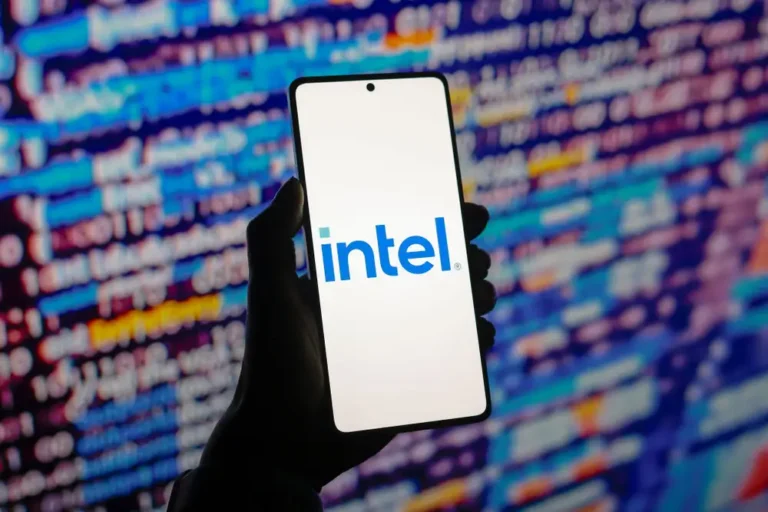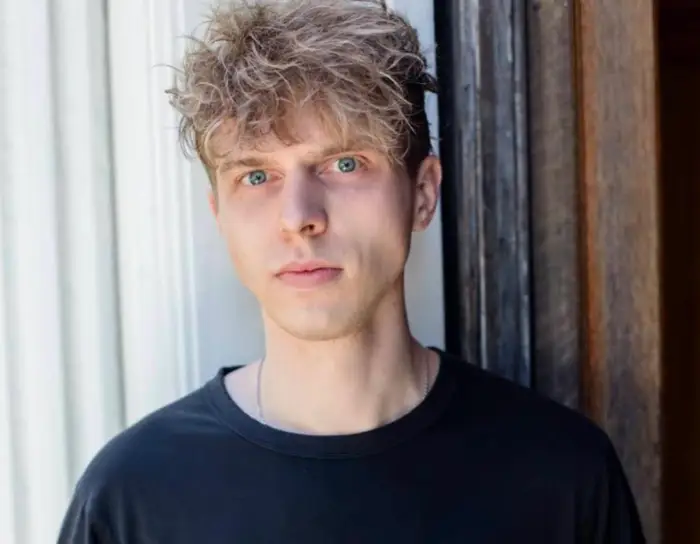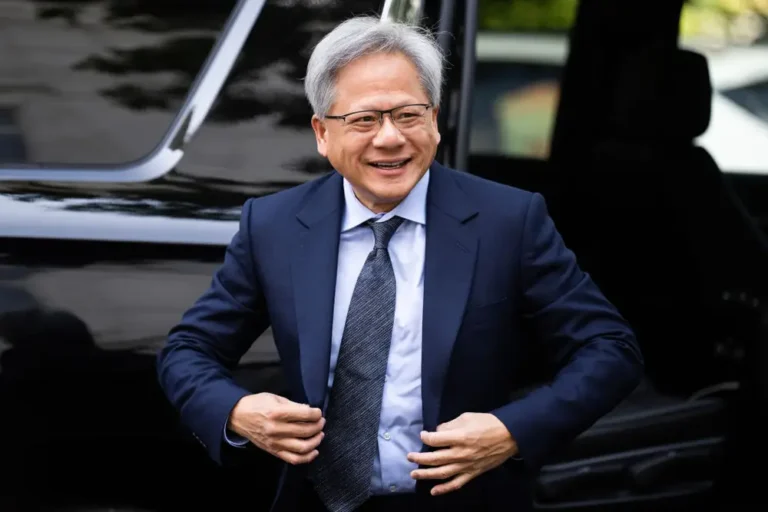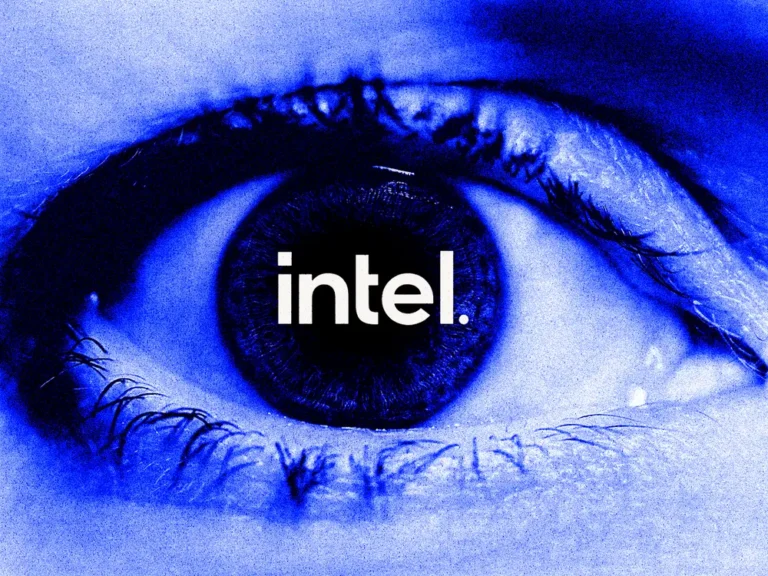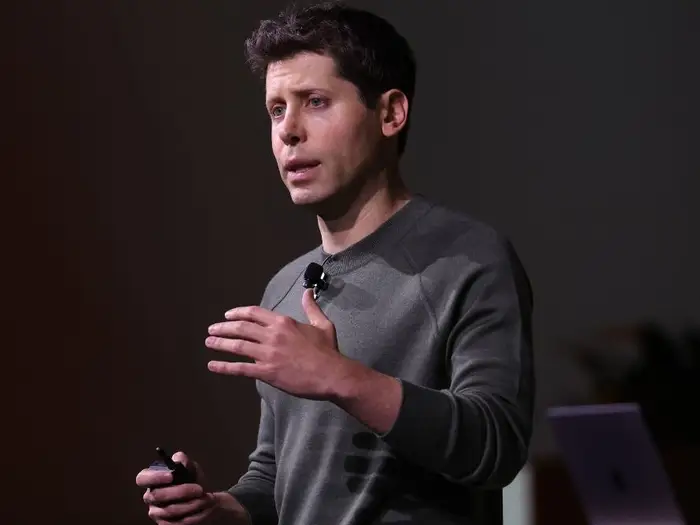What JD Vance’s rise tells us about the influence of Peter Thiel — and Silicon Valley in the age of Donald Trump
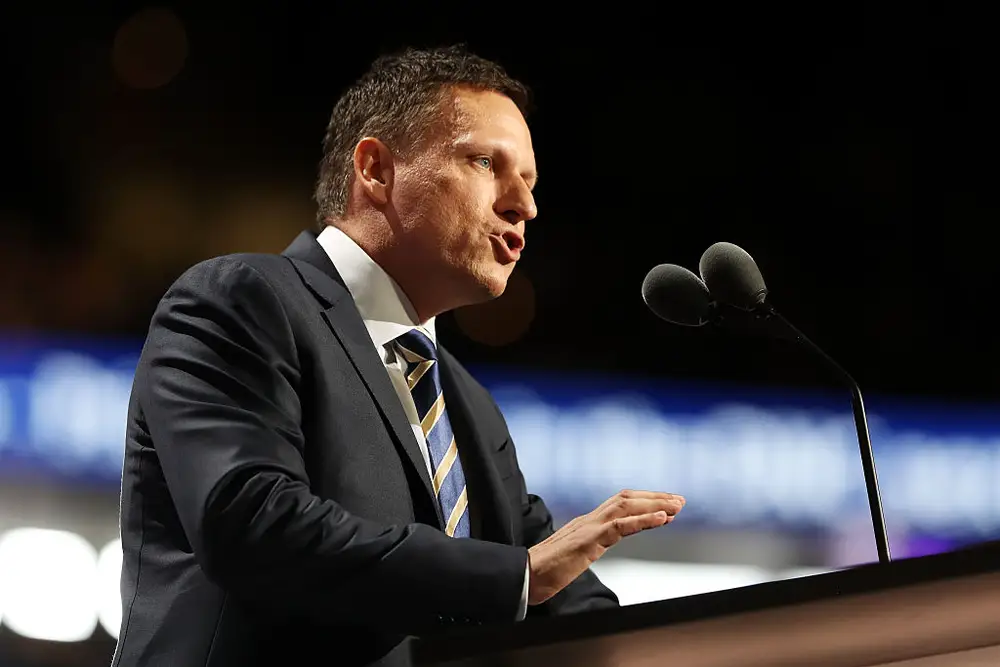
Peter Thiel backed Donald Trump in the 2016 election and spoke at the Republican National Convention. Now JD Vance, who Thiel also supported, could be the next vice president.
JD Vance’s appointment to the Republican presidential ticket is interesting for lots of reasons. But I’m particularly interested in Vance’s connections to Silicon Valley, where a contingent of very rich men lobbied Donald Trump to select Vance as his vice presidential nominee.
And I’m very interested in the fact that one of Vance’s biggest backers is venture capitalist Peter Thiel — who was also a big Trump backer in 2016, but later became publicly disenchanted with Trump.
So, how deep are Vance’s connections to Silicon Valley? And what does his ascent say about some tech moguls’ newfound affinity for Trump?
I ran all of those questions by Bloomberg Businessweek journalist Max Chafkin, who’s covered Thiel for years and wrote The Contrarian — an excellent Thiel biography he published in 2021. The following is an edited excerpt of our conversation.
We know about Peter Thiel’s connection to Trump — he backed him in 2016 and spoke at that year’s Republican National Convention, where he was the first openly gay man to address that group. What is his connection to JD Vance?
He hired Vance at Mithril, another one of his venture capital firms, in 2016. At the time, Vance was an up-and-coming intellectual, and Thiel hired him just as Vance’s book was coming out. And that gave Vance a start in venture capital, and attached Thiel to a really important intellectual. Vance is now this kind of bomb-throwing politician, but back then, “Hillbilly Elegy” was seen as an important memoir, and Vance had a really amazing story.
Thiel has done this throughout his career. He has basically sought out very ambitious young men— sometimes a handful of women, but often men — who are either technologists and interested in disrupting the business order of things or are politically disruptive. And sometimes they’re one and the same.
So he hires Vance, and Vance only lasted a couple years at Mithril. But then Thiel was a key investor in Narya, Vance’s venture capital fund.
I would say Vance’s career as a venture capitalist is pretty undistinguished. The most notable investment he made was in Rumble [a conservative YouTube competitor], and Thiel, in addition to backing Narya, also invested alongside him in Rumble itself. It was a pretty successful investment, and they managed to go public.
But you can see, that’s a pseudo-political investment, too. It’s not just, “Oh, this is a great business opportunity” — Rumble became part of Vance’s political package. Because Vance, like Thiel to some extent, has gone after — as he sees it — left-leaning social media companies, and Rumble is an answer to that.
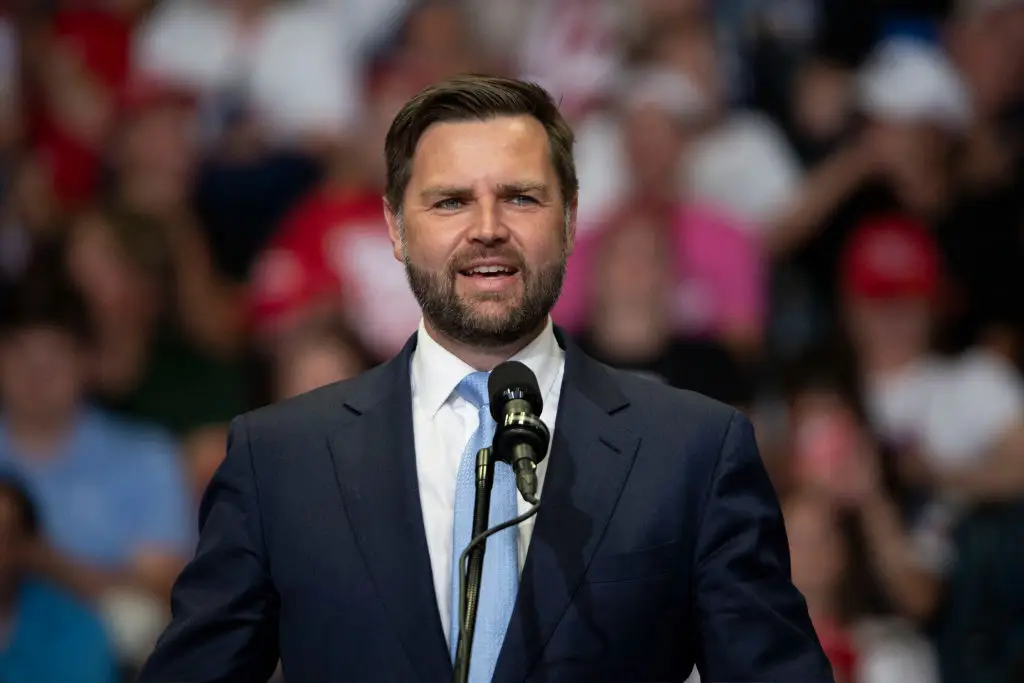
JD Vance was already an up-and-coming intellectual, but Thiel helped supercharge his rise into the US Senate.
Are there other ideological connections between Thiel and Vance? And did Thiel help shape Vance, or were his views pre-baked before they met?
Thiel has had a tremendous influence on a generation of people on the right. He was a pioneer when it came to critiquing universities — he wrote a book in the mid-90s with David Sacks, another prominent venture capitalist and right-wing donor, decrying all of the horrors of the left and “political correctness.” That book is pretty edgy and includes a handful of passages that have been criticized heavily. But it was ahead of its time in a lot of ways because that critique is very much alive and well. Instead of “political correctness,” people are talking about “wokeism,” but it’s the same basic thing.
I will say that Vance has his own political history that predates Thiel. Thiel definitely helped establish him as a viable contender in that Ohio Senate race. Without Peter Thiel, Vance does not get anywhere near the US Senate. But Vance has had a political education, and an intellectual life, that exists outside of Peter Thiel.
So, these are like-minded people who came together. Not a Svengali/puppet thing.
Yes. There are other cases where Thiel finds people and mentors them when they are teenagers. And really helps to shape them, giving them networks and having a clear and huge ideological influence.
But the way I see it is that JD Vance was on the come-up, and Thiel saw him and, like a good venture capitalist, got it on the ground floor. He got in on the Series A.
After backing Trump in 2016, Thiel became pretty publicly disappointed with Trump when he got into office. This summer, he said he’d vote for him “if you hold a gun to my head” but that he wouldn’t back him financially again. What was their connection, and why was there a break?
Thiel has this kind of backward-looking idea about The America Of The Past, which is very similar to Make America Great Again. It was similar to what Founders Fund [a venture fund Thiel cofounded] talked about — where are our flying cars? Where’s the greatness we were promised? Those two things were similar even though Trump is this crass Luddite New Yorker, a million miles away from Thiel, who’s a deeply intellectual, West Coast guy.
Trump and Thiel both kind of revel in throwing bombs, in challenging conventional wisdom in ways that are that seem even borderline offensive. Thiel is a contrarian — the guy saying the unsayable thing, being the provocateur. Thiel thinks that’s very important.
And, of course, that is a core part of Trump’s appeal.
But you look back on how Thiel endorsed Trump back then, it wasn’t a full-throated endorsement. It was: This guy is important. And he’s saying important things. And yeah, there are things about him that I and many other people may find personally distasteful. But when you take the total package, he’s the hero we need right now.
Thiel’s beef with Trump has been about effectiveness. It’s about feeling that Trump talks a big game but doesn’t execute: We came in with these big ideas about disruption. And in the end, we didn’t go far enough.
But I think his engagement with Trump, on the whole, was pretty savvy. He was able to bolt himself into a new echelon of influence and power by being this early investor in the Trump presidency. And he was able to exit early, and essentially cash out before Trump’s presidency collapsed in scandal.
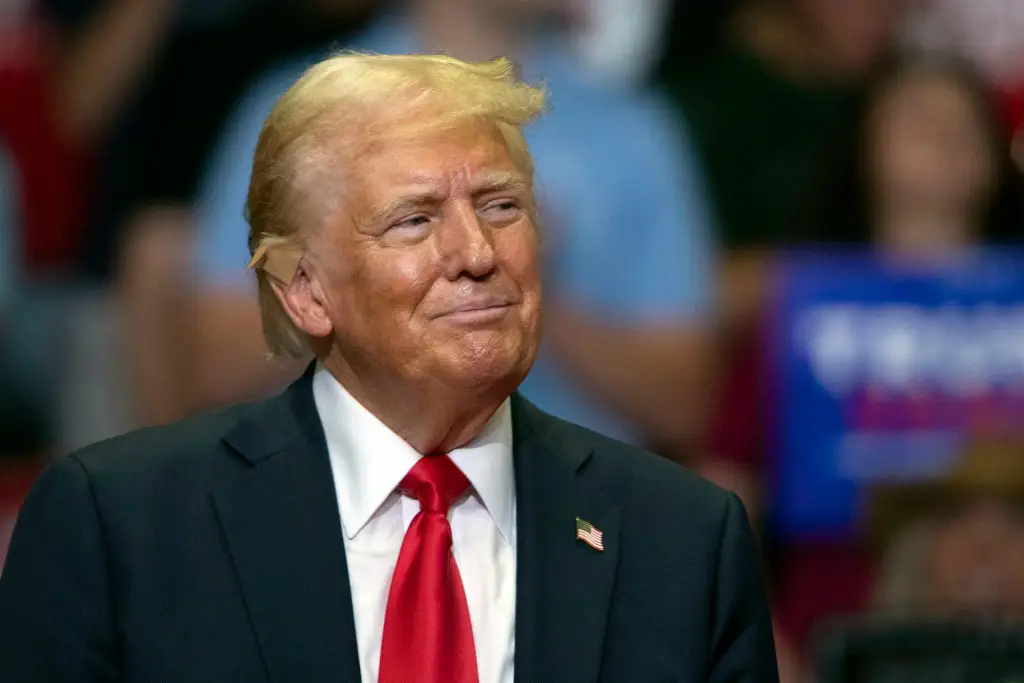
Donald Trump was the beneficiary of Thiel’s donations in 2016, but Thiel says he’s not contributing this year
What do you make of the fact that Thiel was really the only prominent Silicon Valley person backing Trump in 2016 — and now, in 2024, you also have very big names endorsing him, like Elon Musk and Marc Andreessen?
It wasn’t just that Trump had very few people in Silicon Valley who were supportive. There were very few people in the mainstream business world who were really into Trump.
And in 2016 Thiel had a reputation in Silicon Valley as a really smart guy — and not only did he put money behind him, but he put money behind him after the Access Hollywood tape. And not only did he spend money, but he got up there at the convention and endorsed him. He put himself further out there.
What’s changed now is that no sense of embarrassment exists anymore. There’s no sense in corporate America that supporting Trump is a reputation-harming thing.
And in Silicon Valley, the conservative movement is much stronger, and more muscular than it was before.
There’s this narrative, promoted by people like Thiel, that Silicon Valley is super-liberal. And there are just a handful of truth-tellers, one of whom is Peter Thiel, who are fighting the good fight against this super-lefty industry in San Francisco — the most liberal city in the most liberal state.
But that’s kind of BS. Because Silicon Valley has conservative roots in addition to roots in the counterculture. It started as a defense industry. And many of the people in the Valley have always been conservative. And even during the most kind of left-leaning moments of the Valley, it still had libertarian politics.
I think what’s shifted is that in addition to that libertarian strain, there’s now a right-wing populist strain. Some of those libertarians are not really libertarians anymore: They’re right-wing populists, which is a journey that Thiel went on himself, and now many other people have come along.
They’re also just more willing to stir the pot — to really be out there and be provocative.
Some of that has to do with social media and maybe the influence of Thiel. But it also has to do with labor markets, which were really tight during the pandemic, and now they’re not as tight. CEOs are not as afraid of their employees. They’re not afraid that if they express something controversial — that it’s going to disrupt their businesses badly.
So it’s a swirl of things that has led to this very vocal, far-right, populist, Trumpist cohort that was not there before.
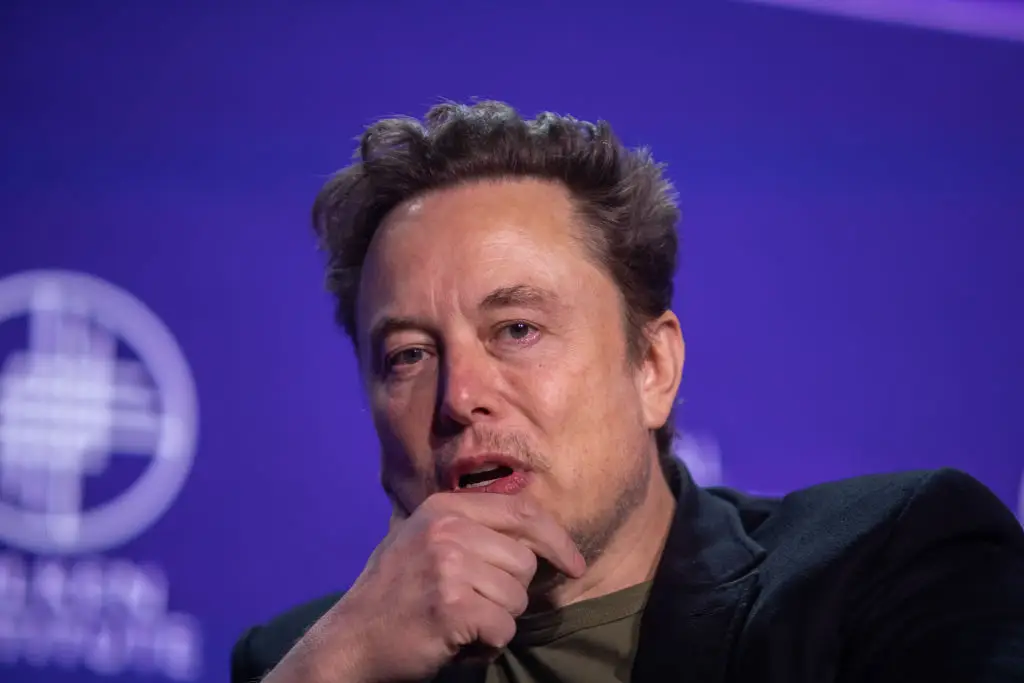
Elon Musk’s outspokenness on Twitter and turn toward the right wing has emboldened others in tech to join in.
Is this really a Silicon Valley vibe shift? Or is this a pretty small group of very rich men?
It’s somewhere in between.
Like I said, the liberal nature of Silicon Valley has always been sort of overplayed. It’s not as liberal as people think and never has been.
The David Sacks, Elon Musk, Peter Thiel types — that is not the norm. But there is a growing contingent of those guys. And they are feeling newly empowered with the ascendancy of Donald Trump.
And also: Elon Musk is obviously a very influential guy, and he has managed to break all sorts of norms. And if not get rewarded for it, not suffer any kind of penalty — not yet, anyway.
And the way Silicon Valley CEOs and entrepreneurs think is that they often just kind of ape whoever the most successful person is. When it was Steve Jobs, you know, they were obsessing over “Are the wires pretty inside my computer? Maybe I need a uniform!”
And now, it’s like: “Elon Musk is shitposting every day. So maybe I need to start shitposting.” It’s some of that, and some of it is that the politics were always there, and now it’s out in the open.
When Marc Andreessen and Ben Horowitz endorsed Trump this month, they took great pains to say: “This is not about any other issues except economic issues. It’s about crypto and startup regulation and how capital is treated. And that’s the only reason we’re doing it.” Do you take that at face value? Do you think they believe that?
I think that money is almost always the best explanation for why big companies or wealthy people do things politically. It’s the explanation you should look at first.


